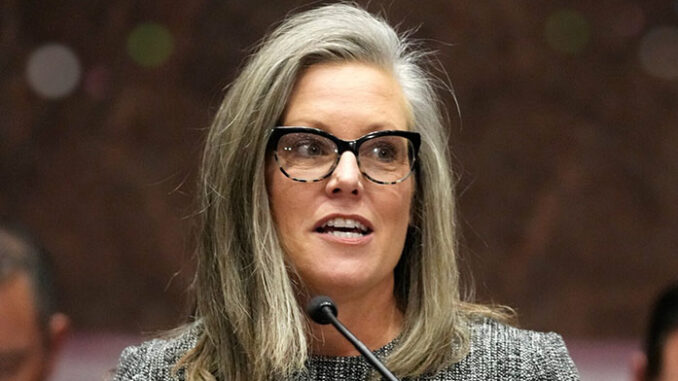
The United States House of Representatives passed House Resolution 29, also known as the “Laken Riley Act” on Tuesday, which passed with a bipartisan 264-159 vote, including Arizona leaders.
The legislation allows illegal immigrants to be taken into custody if they face accusations of crimes related to stealing, and it’s named after the college student who was killed by an illegal immigrant in Georgia last year.
“In November, President Trump was given a mandate, Congress was given a mandate, and that was to secure our border,” Republican Rep. Andy Biggs said in a video following the vote.
The entire Arizona Republican congressional delegation voted for the bill, as well as Democratic Rep. Greg Stanton. On the Senate side, both Democratic Sens. Mark Kelly and Ruben Gallego are supporting the bill.
“Not only am I voting yes on the Laken Riley Act, I’m cosponsoring the bill,” Gallego tweeted. “Arizonans know better than most the real consequences of today’s border crisis. We must give law enforcement the means to take action to prevent tragedies like what occurred to Laken Riley.”
Arizona Democratic Gov. Katie Hobbs also referred to the bill as “an important step forward that will help keep our communities safe and secure our border” in an X post.
The split between Arizona Democrats on the legislation became evident on Wednesday, with Rep. Yassamin Ansari slamming the bill’s proposals.
“The murder of Laken Riley was a horrific tragedy. But the anti-immigrant bill being pushed by House Republicans will do nothing to prevent this kind of violence or reform our broken immigration system,” Ansari wrote in a statement. “Instead, it serves as a license to discriminate against our immigrant communities, including DREAMers.”
“Under this legislation, someone charged-just charged, not found guilty—could be immediately deported. This is a gross miscarriage of justice, and I voted no,” the Phoenix area congresswoman added.
The bill is among the first voted on by the new Congress, which began last Friday. With President-elect Donald Trump set to take office on Jan. 20, it’s likely that he will sign the bill and implement various other tough immigration and border security-related proposals from the executive branch.

